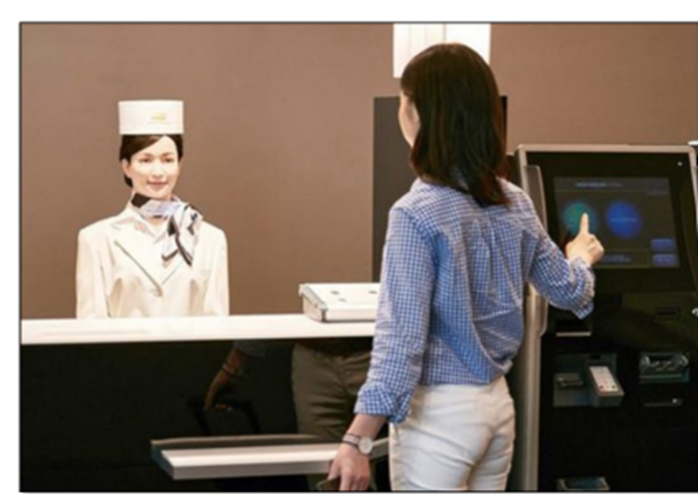
Artificial intelligence (AI) is rapidly advancing from more than just an opportunity for destination organizations but also a strategic and vital business tool. As organizations become more familiar with the technology and its practical use cases, they can leverage AI to enhance business operations while creating a more sustainable and personalized visitor experience.
Recently, artificial intelligence has been understood on a broader scale, and there are endless possibilities for the hospitality industry. At the recent Consumer Electronics Show in Las Vegas, AI and its applications were on full display, including friendly-faced robots who complete deliveries at hotels and restaurants, a robotic bartender pouring cocktail drinks with precision, and bots preparing ice cream and coffee. The innovations began to show up in full force, and many people became concerned about implications in non-customer-facing positions. However, with Las Vegas testing AI experiments and its application on technology to evaluate visitor reactions, these innovations are here to stay as the industry constantly evolves.
AI applications and their use cases in the industry have continued to advance, as it was recently announced that the world’s first AI restaurant called Cali Express By Flippy recently opened in Southern California. Guests who visit the restaurant can watch as robots prepare their meals from start to finish after an order is placed. This is the first operating restaurant utilizing the most advanced systems in food technology where both ordering and processes are automated. This is just one example of how destinations can begin to understand the automation taking place and utilize it as a strategic tool for success. AI and its applications are being used widely today on everything from screening cancers, robots at hotel check-ins, AI-powered smartphone technology, and facial recognition devices at airports. As technology continues to advance rapidly, there is an undeniable truth that AI will fundamentally change the way businesses are run.

In the tourism sector, AI can be leveraged in several ways to benefit the destination organization and its community. From streamlining operations, improving customer experiences, optimizing price strategies, and enhancing decision-making--AI touches all corners of an organization. In the recent report, Artificial Intelligence in Action: Use Cases & Impacts of AI in Society, Business and Travel and Tourism by the World Tourism and Travel Council, they discuss several ways to adapt to technological advancement. AI and its use cases could help solve some of the tourism industry’s most pressing challenges, including labor shortages and climate change mitigation. For example, because of the pandemic, one in every ten jobs in hospitality remains open. In this case, AI can help destination organizations close the existing labor shortage gap with tools like Chat GPT, which can increase productivity while reducing the demand for new hires.
From a global perspective, the AI For Good Initiative was recently launched in response to creating the 17 Sustainability Goals as referenced by the United Nations. Through a partnership with 40 UN agencies, the International Telecommunications Union is leading an initiative to support research into AI solutions for each of its Sustainable Development Goals (SDG) by collaborating with academia, industry, and government organizations. Regarding the challenges faced by the global community, including reduced inequalities, life below water, and gender equality, AI is often seen as the only possible solution to achieve the goals. As an example, SDG Goal number 13 is climate action mitigation. AI algorithms assist with this by designing energy-efficient buildings, planning for low-emission transportation, and helping produce carbon capture technologies.
AI transformation is happening in businesses much faster than the previous digital transformation –on average 16 months faster – which shows that there is a clear sense of urgency for the Travel & Tourism sector to not get left behind in this fast-moving business and consumer revolution. (WTTC, Artificial Intelligence in Action report).
AI Application for a Destination Benefit
AI can help a destination organization perform several tasks that enhance team productivity. The tasks can include reviewing legal documents, utilizing AI chatbots on destination websites, automating personalized communications, managing projects and operations, and managing finances and accounting with automated report generation and financial analysis, which saves time and money. To enhance the employee experience, there is an AI application titled Employee Orchestration Networks, which applies AI predictive analysis to suggest strategies to reduce absenteeism, enhance paid time off rules, and find strategies for enhancing productivity and engagement.
In addition, AI can improve an organization's recruitment efforts by creating job descriptions that eliminate bias, improve communication between potential hires and prospective employers, and provide valuable insights into candidate compatibility. Further, AI can help with employee retention by analyzing data on preferences and personal development plans and suggesting career pathways to make employees feel valued and invested in their roles. Audio is a new tool that uses AI and machine learning to assess personal skills, interests, and abilities related to current and future roles. The WTTC AI in action report recommends several key initiatives that destinations can implement that range from making AI a strategic priority for the entire organization, investing in employee-related skill sets, designing AI responsibility ethics, and prioritizing both short-term and long-term investment strategies.

Moreover, AI is now at the forefront of every touch point on the traveler’s journey to a destination, from booking to check-in. The attraction of visitors to your destination can be made simpler with AI-powered systems that can analyze a vast array of traveler data, such as booking history, preferences, and time spent on a destination’s website. With this information, marketing campaigns can be tailored to individual preferences, which improves customer engagement and retention rates of returning to a destination. Moreover, AI-powered analytics can help monitor and manage visitor environmental concerns, including optimizing energy consumption, reducing waste, and promoting sustainable practices.
AI can potentially transform the tourism industry and operations within a destination organization. From tools that enhance customer service, productivity, engagement, recruitment efforts, and employee experience, there are several opportunities for adaptation as technology advances. From a global perspective, AI can be leveraged to help solve the industry’s most pressing challenges, including climate change, labor shortages, and improvement of health for all citizens around the world. Destination organizations must keep a pulse on AI advancements that will prepare the tourism industry for the next generation.


